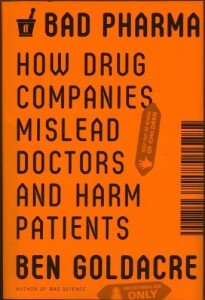Suleika Jaouad, a young leukemia survivor in New York, has been writing essays about her experience of illness. In her most recent post, she described the terror she felt in 2011 when she was considering whether to enroll in a clinical trial:
My doctors recommended a Phase 2 trial, meaning it was not yet known whether the new chemotherapy combination was even effective, let alone better than the standard of care. At a time when everything seemed so uncertain, I craved hard facts, statistics and proof that my cancer treatments were worth the havoc they wreaked on my mental and physical health. The last thing I wanted was to become one of those guinea pigs. I wanted a cure, not a trial.
Jaouad took a deep breath and signed on. Her gamble paid off: She responded well to the investigational chemo and her disease went into remission. Two years and one bone-marrow transplant later, she’s healthy.
If things hadn’t gone so well — if Jaouad had died during the trial — her loved ones might have consoled themselves by saying: At least her final weeks gave something to science. She took part in a trial that will contribute to the sum total of medical knowledge. Cancer patients twenty years from now will be better off because people like Suleika were willing to volunteer.
That’s how we all hope and assume science operates. But too often, those hopes and assumptions are wrong.
 As Ben Goldacre explains in enormous detail in Bad Pharma: How Drug Companies Mislead Doctors and Harm Patients, many clinical trials contribute nothing whatsoever to the well-being of future patients — because their results are never published or shared with the medical community.
As Ben Goldacre explains in enormous detail in Bad Pharma: How Drug Companies Mislead Doctors and Harm Patients, many clinical trials contribute nothing whatsoever to the well-being of future patients — because their results are never published or shared with the medical community.
In some cases, pharmaceutical companies stash the trials’ data in their filing cabinets because their results weren’t to their liking.
In other cases, academic researchers who’ve completed an undramatic trial — say, an investigational drug that turned out to be neither better nor worse than the status-quo therapy — can’t find a journal willing to publish such an unsexy result.
The end result of all this missing data is that clinicians are operating in the dark, with grossly incomplete knowledge of drugs’ efficacy and side effects.
One of Goldacre’s many examples concerns the cancer drug Avastin. In 2010, two Greek researchers noted that 14 of 26 large-scale Phase 3 trials of Avastin had never been published, or even presented at medical conferences. If regulators had had a fuller picture of Avastin’s efficacy (or lack thereof) and its risks, they might have moved more quickly to revoke its approval for breast cancer therapy (which finally happened at the end of 2011).
Several efforts have been made during the last decade to keep clinical-trial data from vanishing. Some agencies, for example, now require clinical trials to be listed in public registries before they begin.
But those efforts have had fitful success at best. Just last week, a paper in BMJ reported that many medical journals don’t insist that their authors use the public trial registries. If journal editors refuse to enforce that norm, many clinical trials will continue to be quietly buried.
Goldacre and his allies (including the Dartmouth Institute for Health Policy and Clinical Practice) have put together a simple petition, less than a hundred words long:
Thousands of clinical trials have not reported their results; some have not even been registered.
Information on what was done and what was found in these trials could be lost forever to doctors and researchers, leading to bad treatment decisions, missed opportunities for good medicine, and trials being repeated.
All trials past and present should be registered, and the full methods and the results reported.
We call on governments, regulators and research bodies to implement measures to achieve this.
The petition doesn’t lay out any enforcement mechanisms. But it sets out a simple principle: No clinical trial should be buried or forgotten, period.
So far, the “all trials” petition has been endorsed by a wide variety of organizations (mostly in the U.K.) representing physicians, pharmacists, patients, and academic researchers. But, as of this writing, no professional nursing organizations have signed on.
That seems like a shame. We have as much at stake in this debate as any other profession.
We’re the people who actually place drugs in the mouths and veins of patients. When I look patients in the eye and tell them about the potential side effects of new medications, I don’t want my answers to be distorted because crucial trial data somehow never made it into the public realm.
Some of my nursing colleagues have an even more direct interest: Many nurse practitioners, of course, have prescribing authority. And research nurses often have the responsibility of walking potential clinical-trial participants through the informed-consent process. (As Goldacre notes, informed-consent forms sometimes mislead participants into believing that a trial’s results will definitely be shared with the scientific community, even in cases where the funder reserves the right not to publish.)
I hope the two nursing organizations I belong to — the American Nurses Association and the Oncology Nursing Society — will endorse the all-trials campaign.
We owe it to patients like Suleika Jaouad. If a person is brave enough to sign up for a clinical trial, she should be guaranteed that the results of that trial won’t be lost, buried, or forgotten.